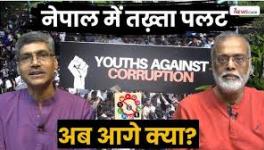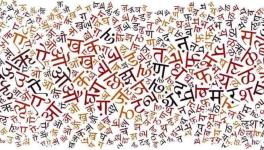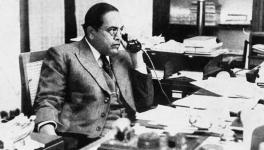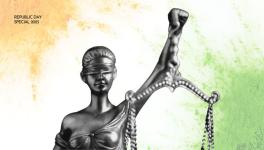Constitution Lynched When Person Lynched for Food He Had: Justice Chandrachud
Image for representational use only. Image Courtesy : live law
Commenting on the great chasm between the idealistic vision of Constitution and actual working of it at ground level, Justice D Y Chandrachud said, "When a person is lynched for the food he or she had, it is the Constitution which gets lynched.”
He placed the working of the Constitution in the context of several recent incidents, which paint the Indian state in a less savoury light, by saying, "The Constitution fails when a cartoonist is jailed for sedition. When jail instead of bail is granted to a blogger who was critical of religious architecture, the Constitution fails."
“When we deny the power of love to people on grounds of religion and caste, the Constitution weeps. Exactly this happened yesterday, when a dalit groom was forced to step down from the top of a horse. When we read of such incidents, the Constitution weeps,” he added with pathos.
Justice Chandrachud was speaking at Justice Desai Memorial Lecture at the Bombay High Court organised by the Bombay Bar Association. He started his lecture reminiscing Balgangadhar Tilak, who was tried in the same court room years ago.
He said that the Constitution was a not a mere document of transfer of power from the British crown to Indian Republic. Article 395 of the Constitution, which repudiated the Indian Independence Act 1947, signifies this by breaking the chain of autonomy of the Constitution to the British Crown. Thus, the framers ensured that the Constitution was an autochthonous document, with its roots in the Indian ethos.
The Constitution has a transformative vision, which seeks to give people the power of destiny. Individual is its basic unit. A constitutional culture is based on the belief that it unifies people beyond one's immediate sphere of acquaintance.
"We" in the preamble is an inclusive and ever expansive "we". He commented about the emancipatory nature of the Constitution, which was reflected in the Sabarimala temple case. The right of a religious denomination is not a stand-alone right, which can exist in isolation from a woman's right to dignity flowing from Articles 14 and 15.
Also Read: SC Upholds Women’s Right to Enter Sabarimala Temple
The world is witnessing new age changes, which is rapidly altering the definitions of personal and cultural identities. He referred to the new breed of state nationalism, new forms of secular and religious violence, new politics of sexual and cultural identities, etc., which are changing the nature of interactions between an individual and society. The very definition of personhood is undergoing change in view of technological developments like Artificial Intelligence. The framers of the Constitution may not have foreseen these changes. The silences in the Constitution should be punctuated with its transformative and emancipatory ideals to make it a living document, which can effectively deal with the new-age challenges.
"Constitution works, even if it doesn't matter to you. Constitution affects you, even if you don't believe in it,” he said, concluding the lecture.
Get the latest reports & analysis with people's perspective on Protests, movements & deep analytical videos, discussions of the current affairs in your Telegram app. Subscribe to NewsClick's Telegram channel & get Real-Time updates on stories, as they get published on our website.
























